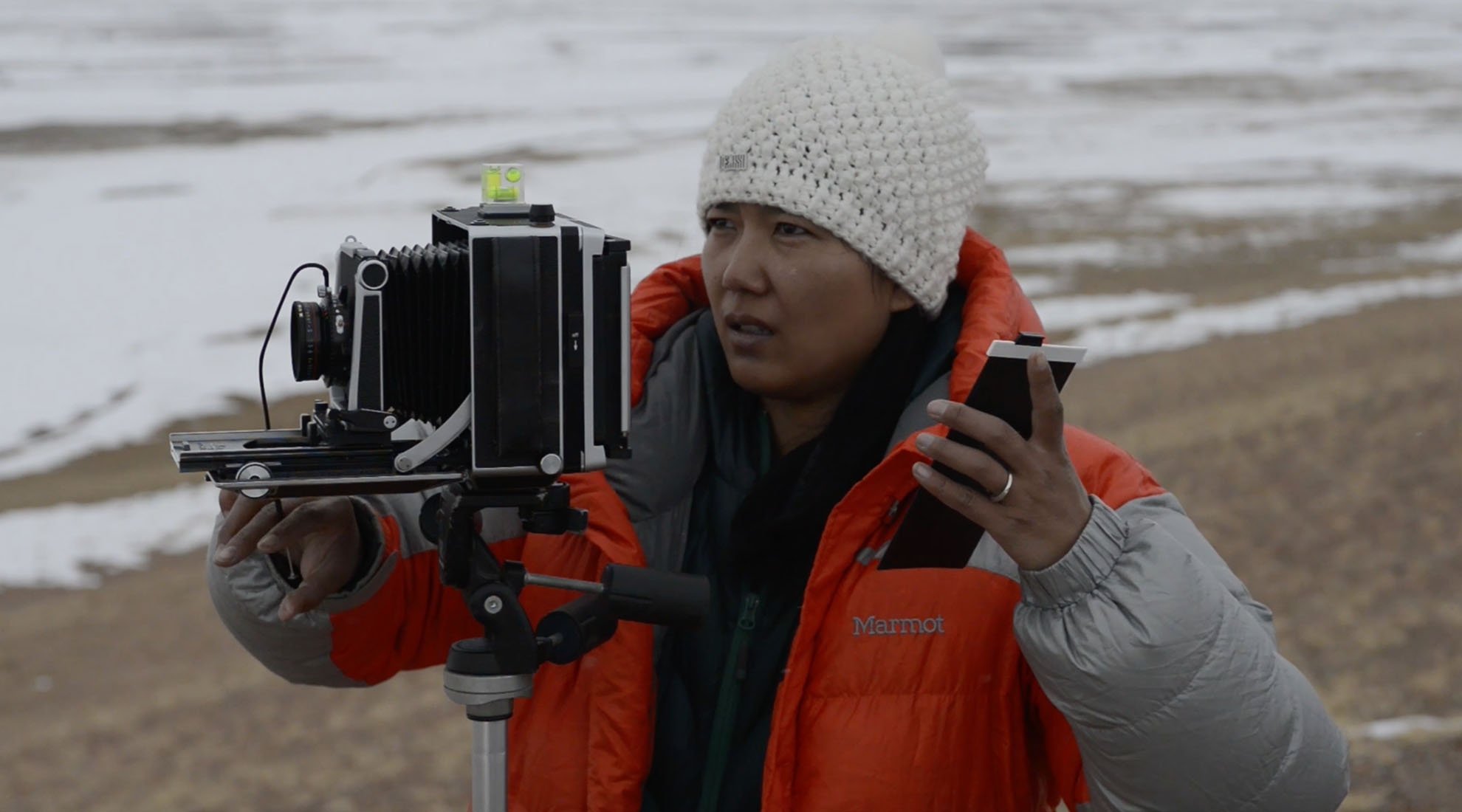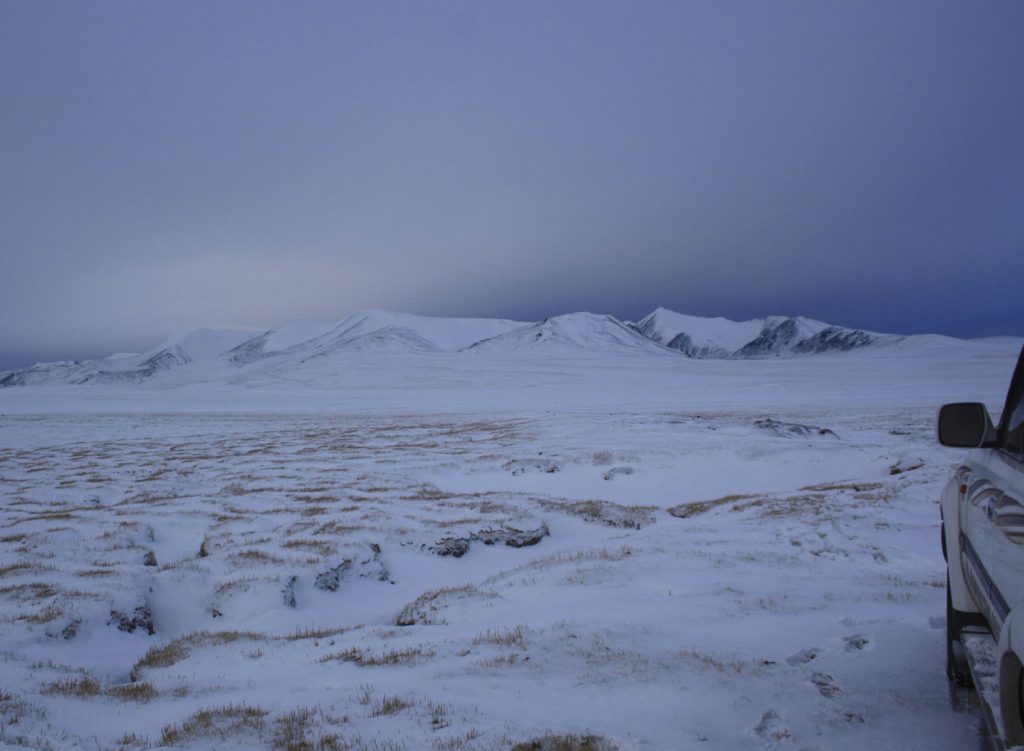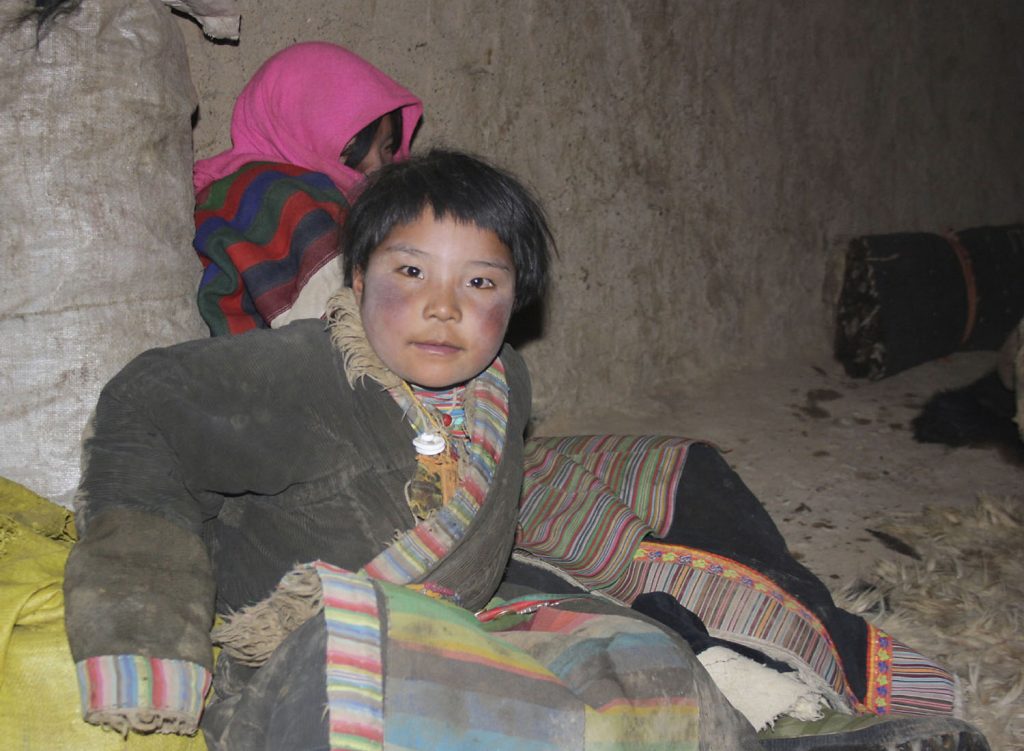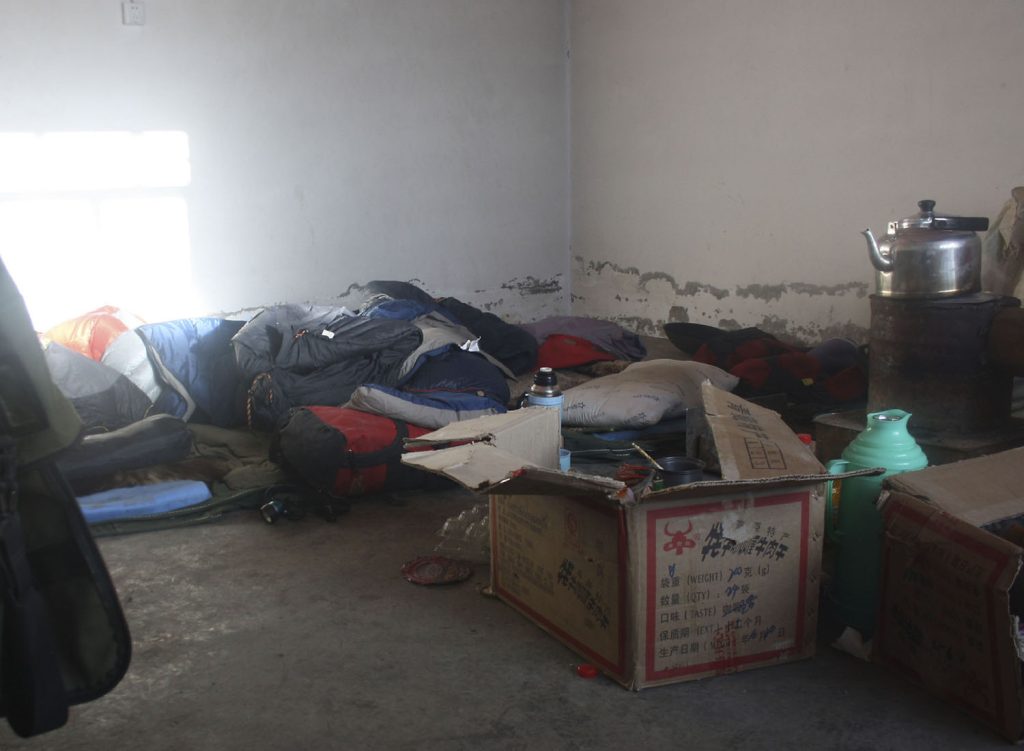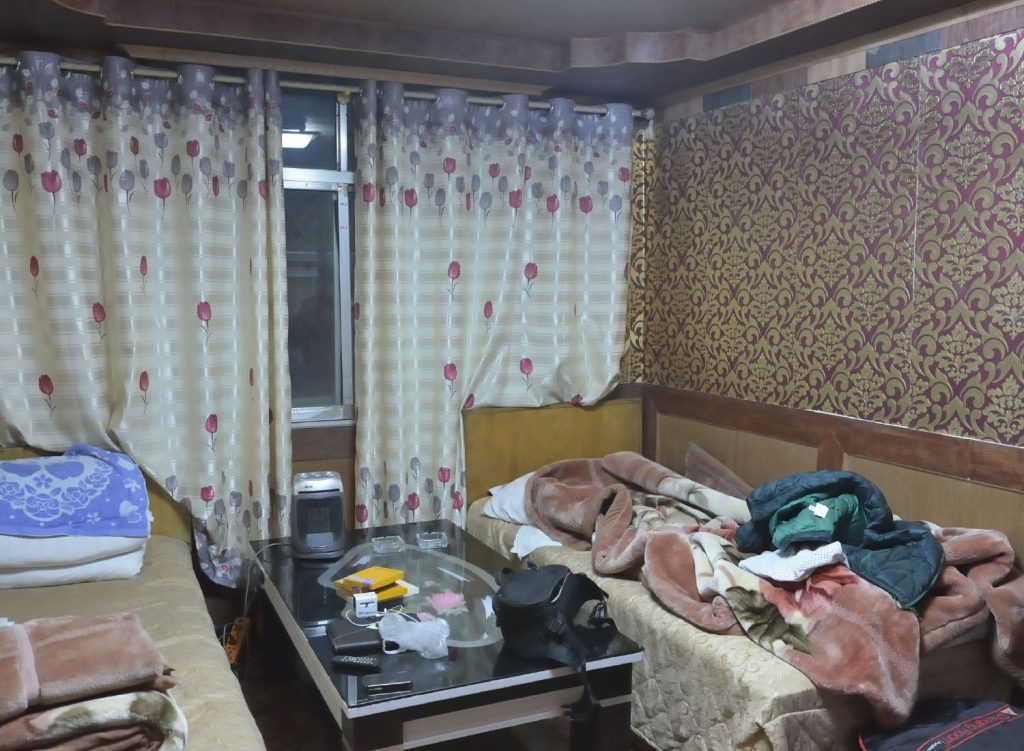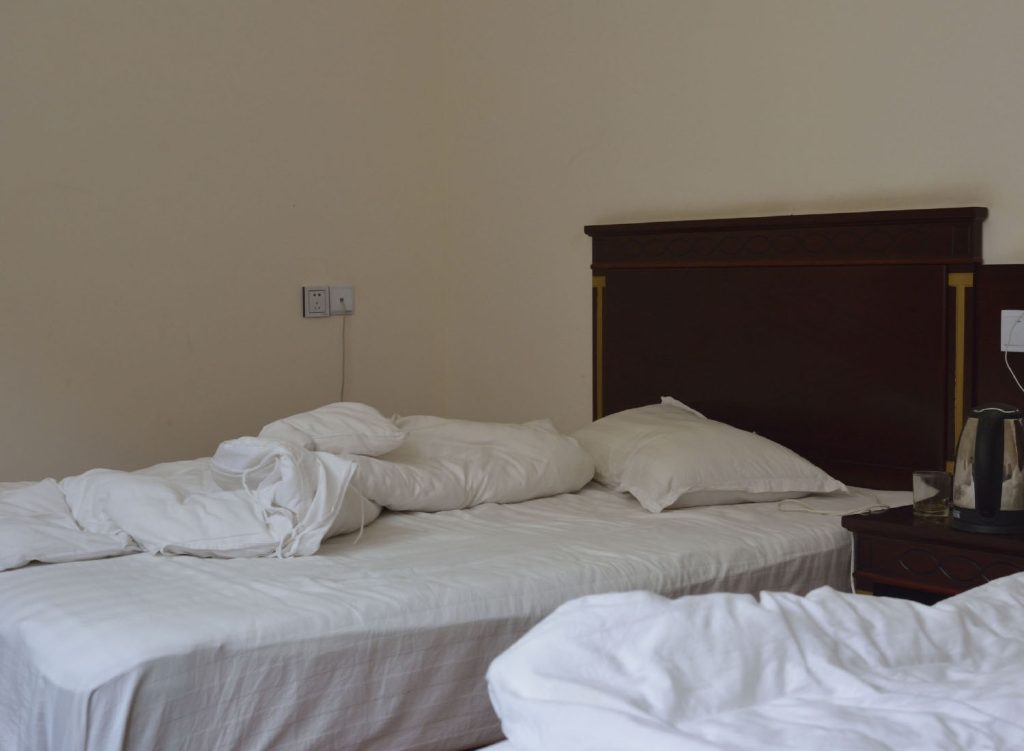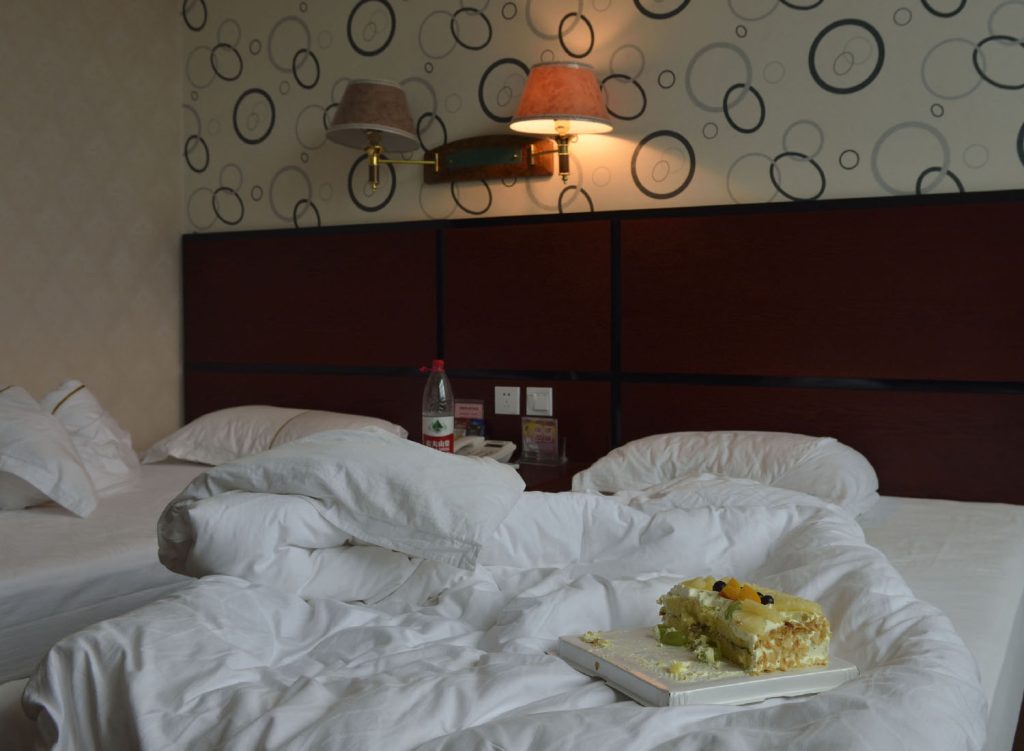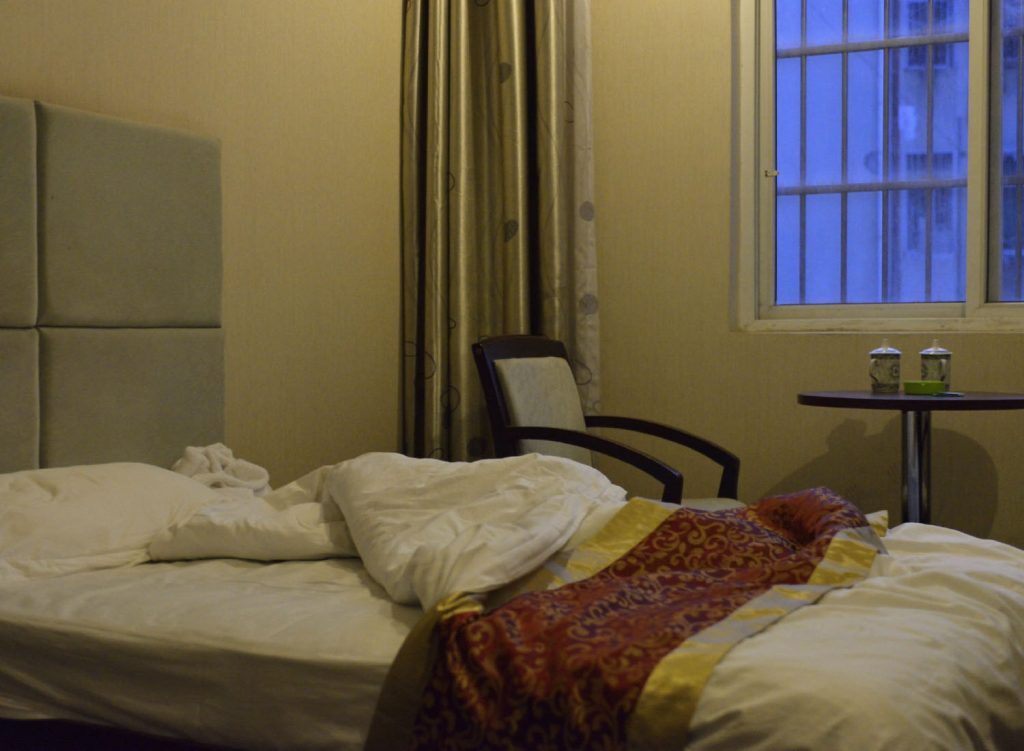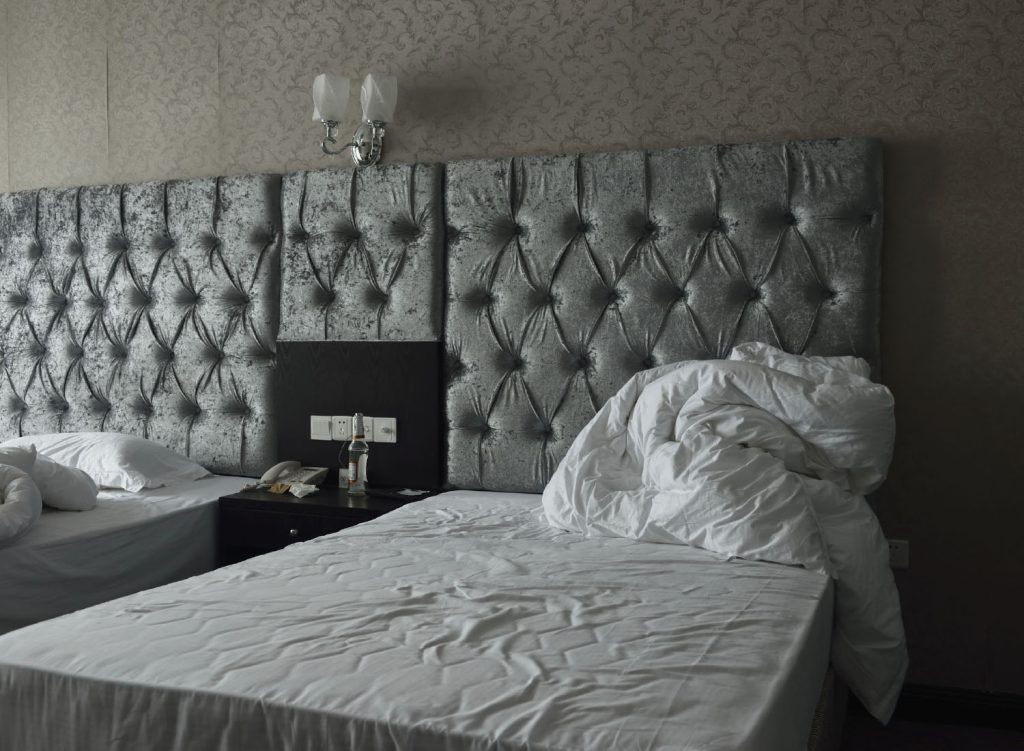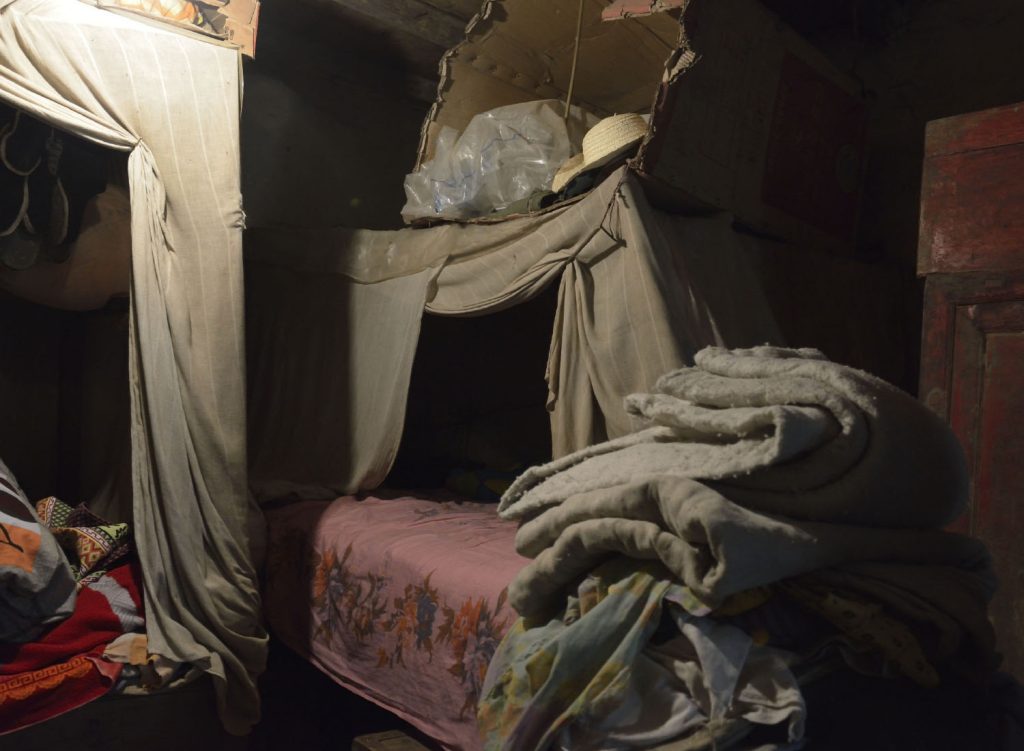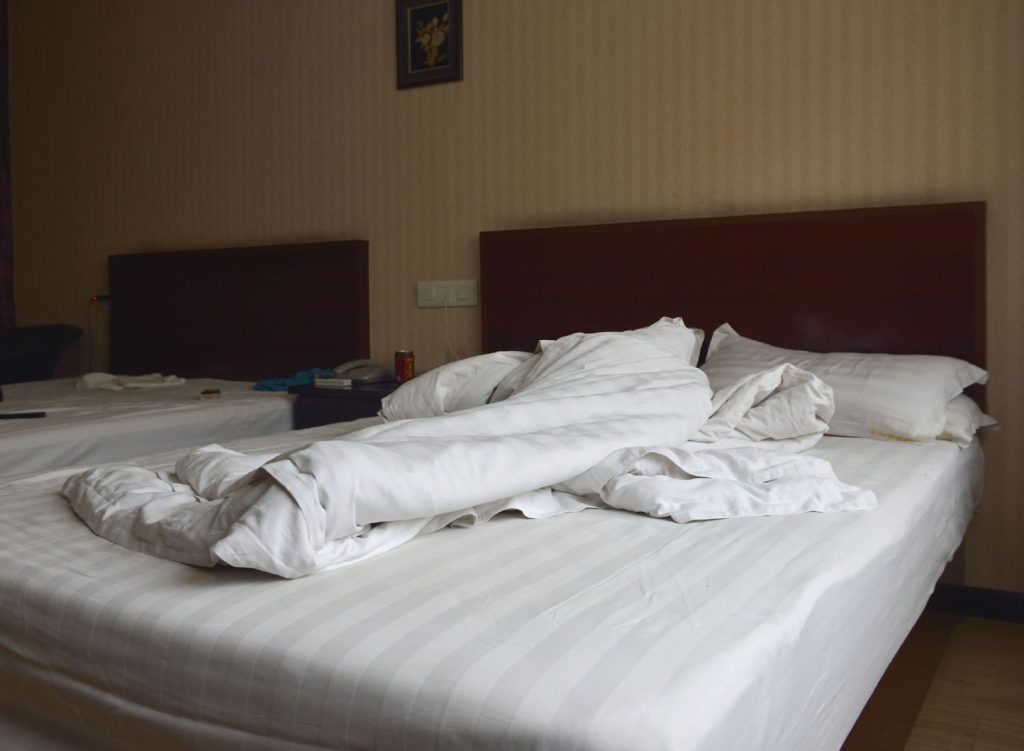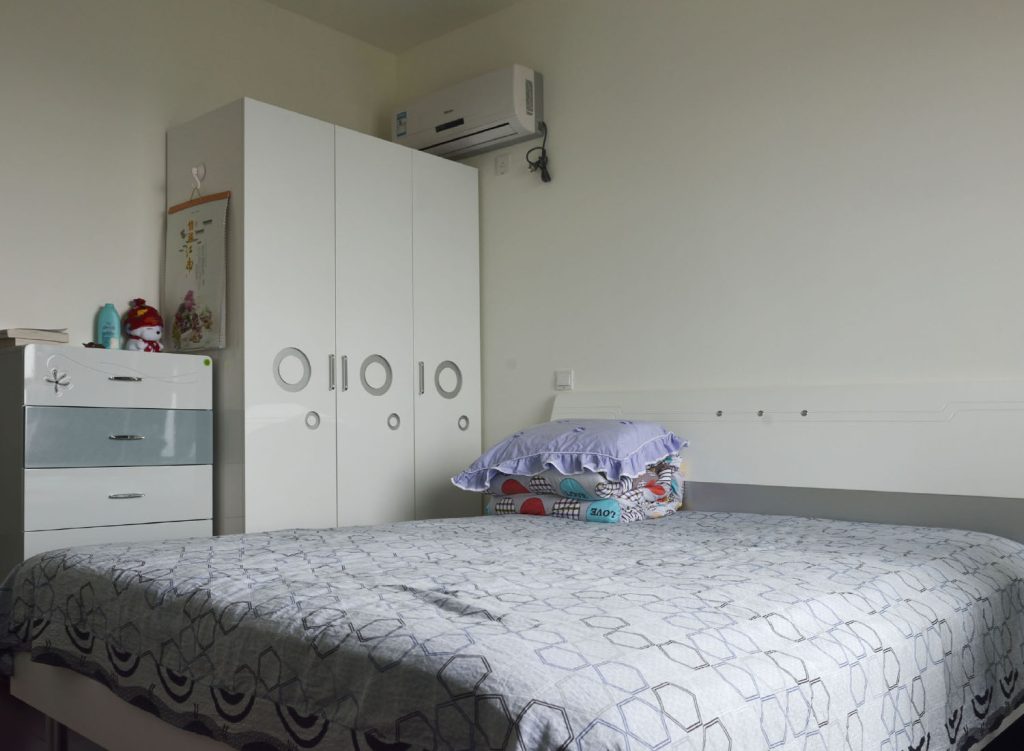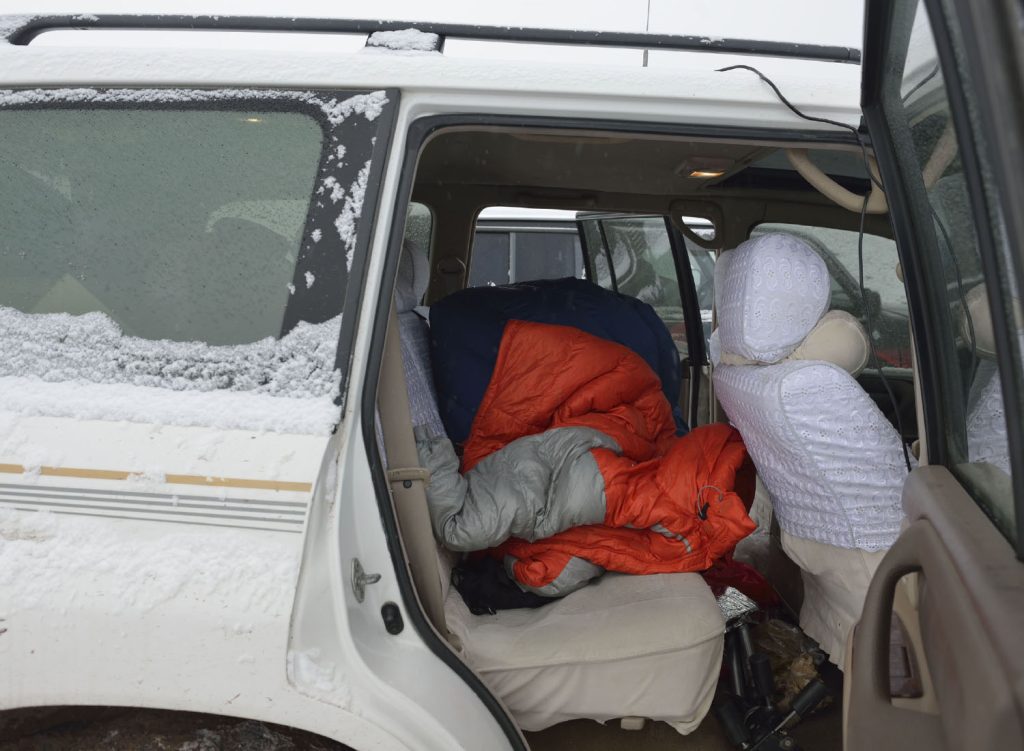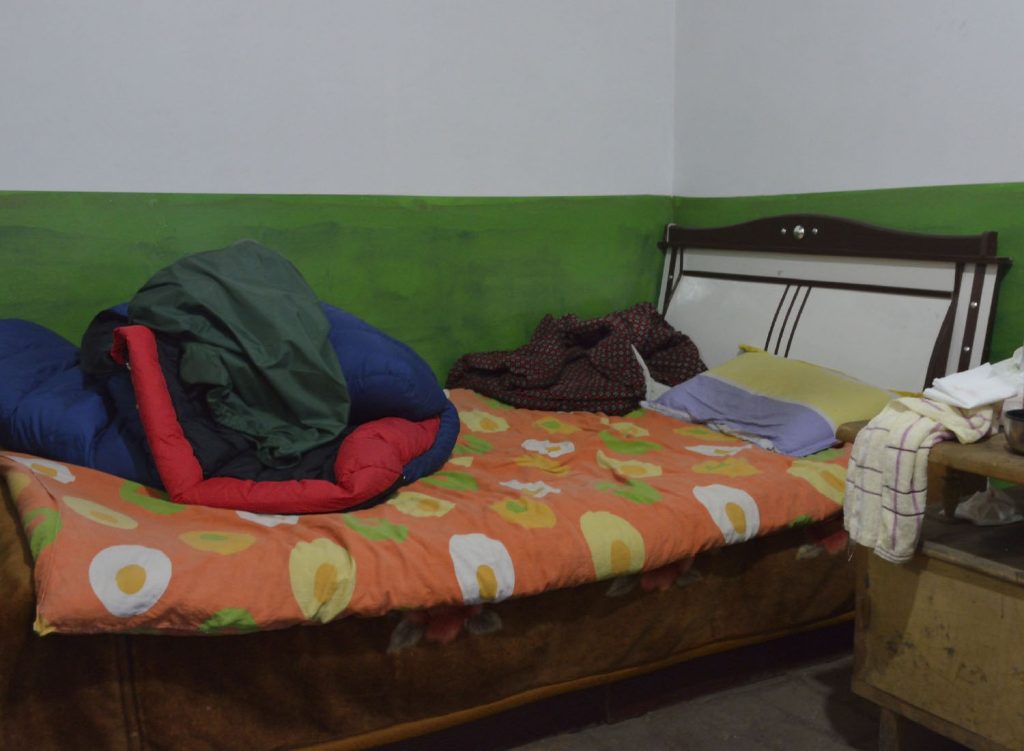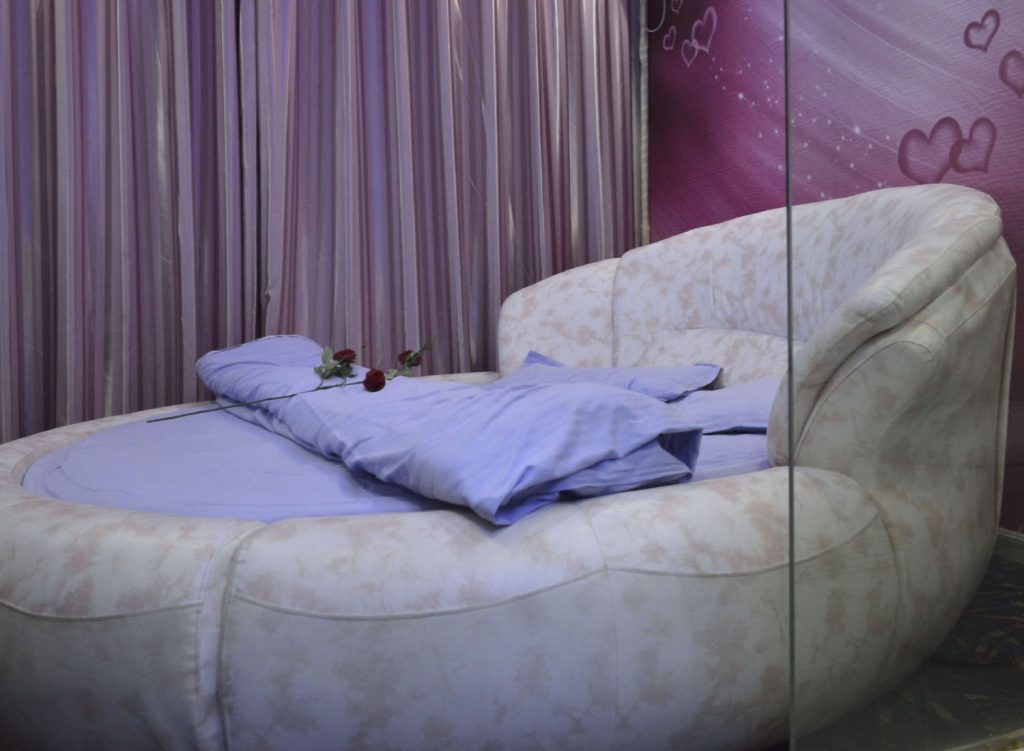Love, Yan.‘People generally, you know, in the art world, they just want to know about the arty things. They forget that this is a bloody journey and it’s massive. It’s about sleeping in a different smelly bed every night. Really, it’s like sweat, tears, dust, blood’.
Yan Wang Preston is talking to us about her epic journey to create an epic piece of art. Mother River was her 2010-2014 photographic odyssey to capture all 3859 miles of the Yangtze River – China’s defining waterway.
Born in Henan Province, China, and trained as an anaesthetist, Yan emigrated to the UK in 2005. Mother River was her first major art project, achieving critical acclaim and being exhibited extensively from Shanghai to the Venice Biennale.
The project started at the river’s source, high on the Tibetan Plateau, ending at the sea in Shanghai, and passing through the heart of China, including the Three Gorges area. Rather than shoot the most photogenic areas, Yan set a rigid formula – she would photograph the river every 100km, at locations she called Y Points, regardless of where the river was, or what it looked like.
The 100km rule made for interesting adventures, as well as incredible photos, many of scenes never photographed before. Seven-hour hikes into desolate locations carrying a large-format field camera (as used by 19th century explorers) made for difficult work and added to the unrepeatability of this project.
The remote locations, along with the increasing development of China, with dams, roads and factories constantly being built, means many of these scenes no longer exist.
These huge changes brought home for Yan the disparity of wealth in modern-day China. ‘From the news, we think of China as this new, upcoming superpower. What I found was 400km inland from Shanghai it was just as poor as anything.’
As well as the main body of work, Yan also shot 76 postcards containing all the beds she slept in during the nine journeys of the project, which is what we chose to focus on. Here is a selection. Her accompanying diary-style writings were all originally signed, Love, Yan.
14 November 2011 – Somewhere on the endless Tibetan Plateau
Our Land Cruisers crawl and bump over the high plateau until we are stuck. In the darkness there is nowhere to go any more. We stop and call it a day on the spot. The night feels like out of this world. Unable to sleep on the front seat, I keep staring at the mountain to our left. It is so bright, shining with blue light. I almost want to climb it. But the moment I step out, I realise that it is impossible.
Within a split second, the freezing air penetrates my trousers and stabs my legs.
Ouch!
Tomorrow. Tomorrow I will reach the source of the Yangtze River.
15 November 2011 – The last house before the glacier
Late afternoon, we finally reach the source of the Yangtze where a monument stands. But the excitement is completely overridden by the painful night.
We are lucky enough to stay with the only Tibetan family about 10km away from the source monument. There is no bed or heating. And they don’t let us sleep in the warmer inner room. Instead I am pushed out and have to sleep on the bare earth not far from the thin, wooden door with holes on it. We are obviously ill-equipped for the extreme conditions here. My camping mat and sleeping bag are useless. The bumpy permafrost earth makes my back freezing cold and very sore. My head hurts badly and my blood is almost being pumped out from the arteries. I need more oxygen. Here at 5400 metres above sea level, there’s only 50% of oxygen in the air compared with at sea level. I can’t even be bothered to test the temperature.
All we can do is to suffer.
19 November 2011 – Gangjiaquba Glacier
Today is a lucky day! We decide to have a look at the Gangjiaquba Glacier on the east side of Mt. Geladandong. It’s much warmer here, perhaps only -10°C at lunchtime. It’s also slightly lower, at 5300 metres above sea level, which is much more comfortable compared with the west side of the mountain. We even find an abandoned concrete house not far from the glacier (well, a few hours’ drive and walk away). With a cement floor, this house feels like heaven. It will be our sweet little home for the next few days. We assemble the stove and collect yak dung for fuel.
Life is so perfect!
09 March 2013 – Chengduo County, Yushu Tibetan Autonomous Prefecture, Qinghai Province
Today I photograph Y11, the first Y Point for this trip. I feel stiff, unable to handle the complex landscape at the destination. Too much going on. The light is a nightmare. We get there at about lunchtime with a strong sun shining into the whole valley, which lies from the north to the south.
This is going to be the light for the whole journey…
This family hostel is in an extremely scruffy little town. Tiny, smelly little room, no heating, no sink. Outside toilet with a hole dug directly into the earth, everything is laid bare to be seen. It’s about right, much more fitting than the Yushu hotel last night. Let’s see what tomorrow brings.
20 March 2013 – Dêrong County, Garzê Tibetan Autonomous Prefecture, Sichuan Province
I’m listening to Chinese Qin music while writing this. A feeling of sadness fills my heart. It seems the world outside, of the Yangtze, is doomed to disappear, just like this ancient music. In the last couple of days, we have driven past many villages in the evening.
They are pitch black. Apparently they don’t have any power supply. But this is difficult to understand, since there are so many hydroelectric dams on the Yangtze and its tributaries here. I ask the owner of the hotel. He says, with a depressed face, that the electricity has been sold to other places. During dinner, he starts talking about the river here.
Apparently, when he was a child, the river was full of fish. They often saw them jumping out of the water. The wild fish tasted nice. But they knew not to abuse them. Only weak elders, children and pregnant women had the privilege of eating some. Now, with tourism, people from the big cities are paying so much money for the fish that they have literally been killed off. The young man says, ‘It’s a shame, because our children won’t see those fish jumping out any more.’
10 June 2013 – Yuanmou County, Chuxiong Yi Autonomous Prefecture, Yunnan Province
My birthday.
We are stuck here, waiting for the rain to clear before approaching Y28. According to the hard-won local information, there is a 10km section on the way that is subject to landslides after rain. Also, a small river tends to get violent and destroy the only bridge. And the only way to approach our point would be by boat. A couple of families from the nearest village might have these for rent.
But it could come at a price. Two of us can’t swim.
Wish us luck.
16 June 2013 – Leibo County, Liangshan Yi Autonomous Prefecture, Sichuan Province
Another extremely long day. And here is an interesting conversation with Alex (a filmmaking friend who is travelling with me):
‘Hey, Yan, what’s the plan for tomorrow?’ Alex asks while we try to find Y29, struggling in the mud behind a long queue of lorries.
‘Well, to be honest, I don’t even know where I’m going today,’ I reply.
‘I can’t believe that you don’t even make schedules,’ Alex says, sighing.
15 September 2013 – Changshou District, Chongqing Municipality
We’re now entering an area that is deeply within my cultural memory. Y39 is the beginning of the Three Gorges and the Three Gorges Dam area, a famous battlefield for the heroes in the Three Kingdoms. A semi-flooded, ancient landscape with a full life going on. At night we stay in a holiday hotel right next to the river. Soft moonlight shines on the water. The only sound is the occasional call from the fishing boats. I’m thinking of the poem written by the Tang Dynasty poet Zhang Ji, A Night Mooring at Maple Bridge:
Moon’s setting, crows cry and the frost fills all the sky;
By the maples and boat lights, I sleepless lie.
I feel very much at home. Body and soul. I’ll take you here next time.
18 September 2013 – Gejia Village, Wushan County, Chongqing Municipality
When I ask the host where the toilet is, she eagerly takes me to the back room.
The bare bulb is switched on, and two giant pigs come into view. A wooden board about half a metre high separates them from the hole in the ground: the toilet. I squat down. It would be the most tragic death if I was pushed into the deep hole by the noisy pigs so close behind!
Between the front room and the kitchen, there is a small storage section. Piles of potatoes flood the floor and homemade sausages populate the ceiling. In between them, a beautiful coffin sits squarely. Our host has prepared for his own funeral!
25 September 2013 – Yueyang City, Hunan Province
What’s going on? I have been looking forward to Y49, because it is in Yueyang and portrayed in the beautiful prose The Renovation of Yueyang Tower by Fan Zhongyan, written in 1046. In the prose, the area has beautiful light, dramatic weather, fish, birds, mist and a poetic atmosphere. But what I see is an ugly, messy port, dirty water and people living in obvious poverty. I want to combine history and reality in my photograph but the reality doesn’t allow it.
A bit lost now.
06 October 2013 – Taicang City, Jiangsu Province
I’m making a special trip to photograph Y62 from the north side (left bank) of the Yangtze. Jiang Bei, as the area is commonly referred to, is known to be the poorer area in comparison to the rich and cultural Jiang Nan (the south of the Yangtze River). But there is a special layer to the trip: I’m staying in a friend’s apartment. Ten years ago, when we last saw each other, we were both a lot younger. Somehow there is still this unsaid bond between us, a common interest for a life filled with travelling adventures and freedom. To sleep in his father’s spare bedroom is a special, homely treat for me. It turns out that Y62 on this side actually has historical significance. This is where Captain Zheng set sail for the first time for his expeditionary voyages to Southeast Asia, South Asia, Western Asia, and East Africa from 1405 to 1433. But all that’s left now is a messy port with concrete ruins and muddy construction sites. My mind is muddy as well. My historical memory/ imagination doesn’t work with the landscape in front of me.
What am I to do?
08 November 2013 – Somewhere on the Tibetan Plateau again, Qinghai Province
The great English mountaineer Mick Fowler compares sleeping on a portaledge on snow-covered mountains with sleeping in a hotel room. According to him, the hanging portaledge wins on every point: it has good ventilation, a fantastic view, and a perfect temperature.
The same can be applied to camping in our Land Cruiser. Beer reaches the ideal temperature without being in a fridge. Packet noodles taste like the best pasta aioli. The abandoned Tibetan sheep pen feels like a safe Eden, protecting us from the limitless wilderness outside, and the nearby wolves for that matter. In the afternoon I photograph in a sandstorm in near darkness. It looks like I’ll photograph in the snow tomorrow morning. Such is the fun of the Y Points System.
10 November 2013 – Yege Township, Qumarlb County, Yushu, Tibetan Autonomous Prefecture, Qinghai Province
A travelling photographer’s day: waking up at 5300 metres above sea level in the Land Cruiser. Flushing down headache pills with oat porridge. Taking photos at the riverside in snowfall. Reaching a proper road by 3pm. Starving.
Continuing to drive after some noodles. Asking for directions at a local government building at 5pm. Having dinner with them but not being able to eat: salty rice porridge with lamb inside. Taking all the essentials into the room. Cleaning out the rubbish from the jeep with just the light from a head torch. Cleaning the sand-covered, large-format camera inside out. Cleaning the sand-covered digital camera while waiting for the water to boil on a stove fuelled by yak dung. Erecting the changing tent, and taking out all the exposed films from the previous two days. Cleaning the sand- covered dark slides. Putting them back into the tent and loading the films for tomorrow. Placing the dark slides back into the camera bag. Making the bed. Writing the diary. 10:30pm. Good night.
20 November 2013 – Nanjing City, Jiangsu Province
A love hotel.
I pick the most outrageous bed and lie down in the middle. We’d seen young students coming in and out. And I am anticipating some loud noises, but everyone seems quiet.
I feel exhausted and very stressed. But this strange encounter with a love hotel makes my day. At the end of the day, this is still a journey. Full of surprises. And let’s enjoy it.
You can see the archive of Mother River and more of Yan’s work at yanwangpreston.com .
Intro: brant richards Photos: Yan Wang Preston
First published in Issue 3 of Bother Magazine, December 2024.
BOTHER is the HebTroCo print magazine.
The antidote to the algorithm with a coupon in every issue.
Buy the latest issue of BOTHER
